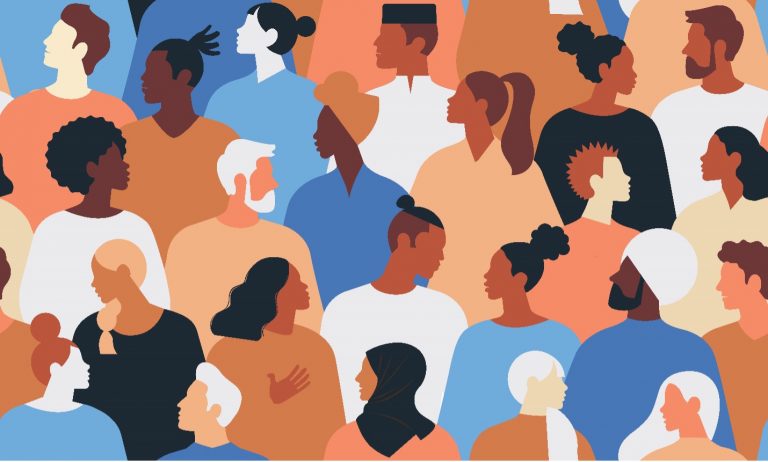Levelling the Genomic Research Playing Field

Ethnic underrepresentation in genomic research leads to suboptimal healthcare for minority communities. What can be done to improve diversity in this field?
In April 2003, the scientists working on the Human Genome Project published for the first time ever the full sequence of the human genome—a complete and detailed map of the entire genetic blueprint of the human body. In the years that followed the project, genomic research has flourished, giving rise to a better understanding of diseases, more effective therapies and a plethora of cutting-edge techniques used today.
However, a recent Perspective article1 for Nature Medicine by Prof Karoline Kuchenbaecker of the University College London and Dr Segun Fatumo of the London School of Hygiene & Tropical Medicine Uganda Research Unit argues that genomic research now faces a troubling conundrum that may undermine the achievements of the Human Genome Project: a lack of ethnic, and therefore genetic, diversity.
Kuchenbaecker and Fatumo point out that as of June 2021, nearly 9 of every 10 genomics studies were conducted with people of European ancestry, despite the group constituting only 16 percent of the world’s population. Furthermore, the few studies that include ethnic and racial minorities have been performed mostly on ethnic communities living abroad, and thus do not capture the full rich genetic diversity and unique health needs of those communities back home.
Complex causes, crippling consequences
The reasons underlying the stark ethnic disparity in genomic research are plenty and complicated, according to Kuchenbaecker and Fatumo, but much can be explained by systemic inequalities and historical injustices.
“The dominance of European and American scientists in genomic research is a consequence of structural advantages, some of which are related to historical and present-day exploitation,” said the researchers in an opinion piece published in The Telegraph, adding that there are two broad groups of underrepresented populations: residents of low- and middle-income countries and Indigenous and minority groups across the globe.
For instance, research often takes a backseat to more urgent priorities in many low- and middle-income countries. As a result, local scientists rely on foreign funding agencies, which often exert oversized influence on the research agenda and leave local experts out of decision-making and authorship.
Kuchenbaecker and Fatumo also highlight that many Indigenous groups worldwide may not trust scientific research due to past experiences involving exploitation, thus reducing their participation in scientific research.
Whatever the causes may be, the underrepresentation of different ethnic groups in genomic research has tangible consequences. Eurocentric biases can cause biomedical research to miss out on potential disease-causing gene mutations that may be more common in some populations than in others.
Moreover, existing tools that use genetic information to predict disease may not work equally in different populations. Citing a previous study2, Kuchenbaecker and Fatumo pointed out that these polygenic risk scores, mostly derived from European populations, are only half as accurate in Asians, and nearly five times less so in people of African descent.
Ultimately, such an imbalance in genomic research translates to healthcare that may not account for the unique and diverse health needs of minority populations.
A genuine willingness for change
The good news is that there is still hope, say the researchers. Leveraging their extensive experience running genomic research programmes in diverse communities, they proposed a list of recommendations to improve diversity and representation in genomic studies.
They suggest establishing dedicated funding streams specifically for ethnically diverse research, especially since most funders impose eligibility requirements that are too restrictive for scientists from poorer or minority communities. They also recommend training and capacity-building initiatives to make research programmes sustainable, and to help young local scientists become globally competitive.
Most important, however, is the genuine and earnest willingness of stakeholders—research and funding institutions, scientists and the communities themselves—to organise and participate in research projects that accurately reflect community diversity. In particular, it is crucial for scientific institutions to ensure a diverse workforce and demonstrate that they respect the beliefs, values, traditions and health priorities of minority communities.
The researchers emphasise that these goals are achievable. “The success of some diverse studies illustrates that indigenous groups and those at institutions in low- and middle-income countries can scale up in resources and skills to enable high-quality genomics research,” Kuchenbaecker and Fatumo said.
In October 2019, a large-scale collaboration3 between Singapore’s top research institutions proved that diverse genomics studies are not only possible, but also very valuable. Their efforts led to complete genome sequences of almost 5,000 Singaporeans, giving rise to the world’s largest genomic repository for a multi-ethnic Asian population. Their analysis also found 14 unique genetic markers that could explain ethnic differences in traits and disease risk.
“We have to fundamentally alter the way we do research,” Kuchenbaecker and Fatumo wrote. “Only then can all benefit from the genomic revolution.”
References:
1 Fatumo, S., Chikowore, T., Choudhury, A., Ayub, M., Martin, A.R., Kuchenbaecker, K. A roadmap to increase diversity in genomic studies. Nat Med 28:243-250 (2022)
2 Martin, A.R., Kanai, M., Kamatani, Y., Okada, Y., Neale, B.M., Daly, M.J. Clinical use of current polygenic risk scores may exacerbate health disparities. Nat Genet 51:584-591 (2019)
3 Wu, D., Dou, J., Chai, X., Bellis, C., Wilm, A., et al. Large-Scale Whole-Genome Sequencing of Three Diverse Asian Populations in Singapore. Cell 179:736-749.E15 (2019)

